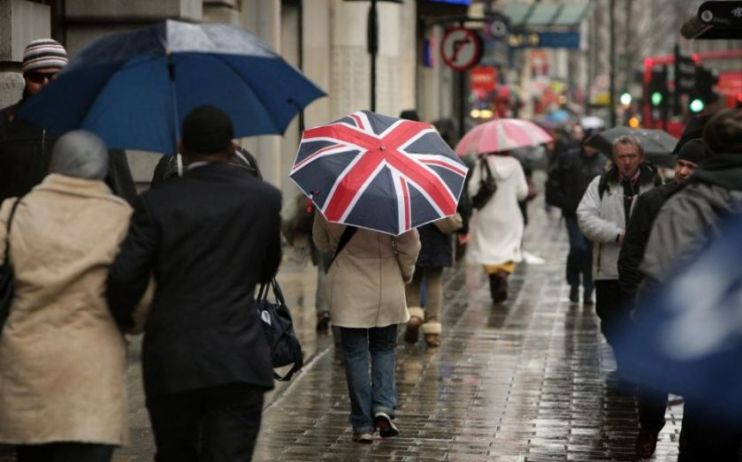New UK growth figures to ‘mark the start of a mild recession’

New figures out on Friday are expected to show that the economy contracted in the third quarter, raising the possibility that the UK is already in a recession.
City economists expect that UK GDP shrunk by 0.1 per cent in September, meaning that the economy will have contracted across the third quarter by the same amount.
This is a more pessimistic view than the Bank of England’s forecasts, released last week, which suggest the economy will be stagnant in the third quarter.
Weaker household spending, lower business investment and falling government consumption will be “driving the drop in demand,” according to Sanjay Raja, chief UK economist at Deutsche Bank.
He said that a worse performance in September could “spell some bad news” for the remainder of the year due to carry-over effects. This raises the risk that the UK will enter a technical recession, when there are two consecutive quarters of negative growth.
Paul Dales, chief UK economist at Capital Economics, predicted a larger 0.2 per cent quarterly contraction. He cited “the growing drag from higher interest rates” as a key contributor to stumbling growth.
Interest rates have been hoisted to a post-financial crisis high of 5.25 per cent in an attempt to combat inflation. While markets are increasingly convinced rates have hit a peak, the Bank of England stressed that it is still far too early to talk about cutting rates.
The higher cost of borrowing has brought economic activity to a near stand-still. Consumption, which makes up a large part of domestic demand, has been hammered by the rapid rise in interest rates.
Recent figures from the Office for National Statistics (ONS) showed that consumers had been cutting back on spending by more than expected in September, with retail sales falling 0.9 per cent.
Despite a slow turnaround in manufacturing and improvements in trade and business inventories, Dales said Friday’s figures would “mark the start of a mild recession”.
Although the UK has outperformed expectations so far this year, forecasters are painting an increasingly bleak picture for the economy over the coming years.
With increasing numbers of households moving onto mortgages with much higher levels of interest payment, higher interest rates will continue to constrain consumer spending in the months to come.
The Bank of England expects GDP to remain stagnant next year. Recent forecasts from the International Monetary Fund (IMF) suggested that the UK would be the worst performing advanced economy over 2024.